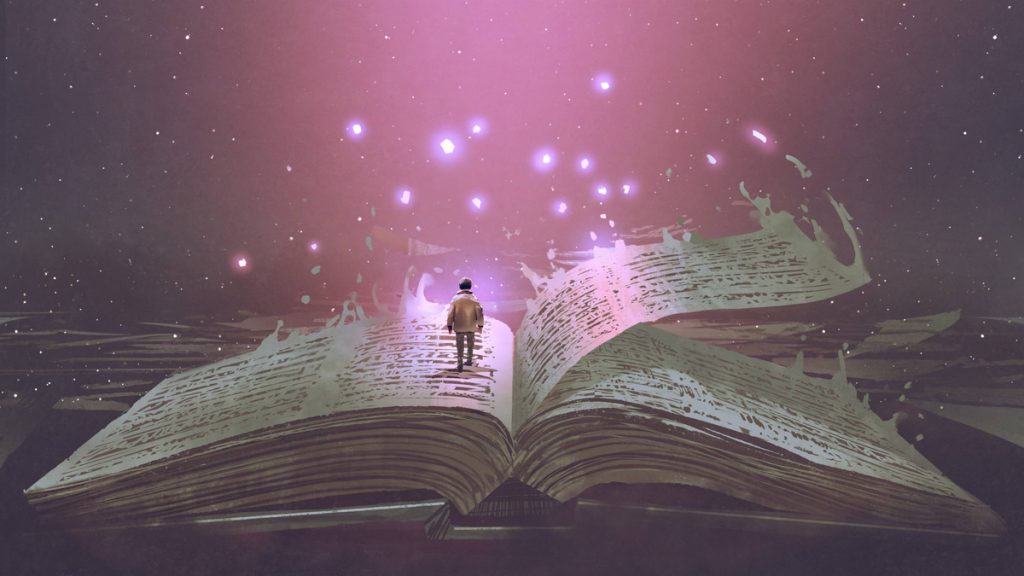Quick Links
Useful Links
- Services
- Privacy Policy
- Terms & Condition
- Contact Us
Get in Touch with Us
- support@dummyEmail.com

A great fantasy novel does more than tell an engaging story—it immerses readers in a fully realized world. In Sword, Crown, and Quill, Allen “Reign” Odom constructs a setting that is as enthralling as it is oppressive, a place where ether is not just magic but a fundamental force that dictates every aspect of life. This novel doesn’t simply introduce a fantastical world—it forces readers to confront the very structures of power and privilege that shape our own reality.
The world of Sword, Crown, and Quill is driven—almost ruled—by ether, a powerful energy source that determines social standing, economic control, and personal ability. Those who wield ether hold influence, while those without it, like Malick Barnes, are cast aside as “dregs.” This system mirrors real-world structures of privilege, where access to resources often defines a person’s worth in society. Through this lens, Odom crafts a fantasy world that feels eerily relevant, asking questions that linger long after the final page is turned.
But what makes this world truly captivating is its depth. Ether isn’t just an abstract magical force—it is an intricate, almost sentient element that fuels everything from weapons to politics. The ruling Guilds control its distribution, the Church sees it as divine, and underground movements seek to dismantle the monopoly. Every institution in this world revolves around ether, making it more than a backdrop—it’s a character in itself.
Odom’s world-building is meticulous, with layered institutions, rich lore, and deep cultural divides that add authenticity to the narrative. The complexity of the etheric economy is particularly fascinating, as it mirrors real-world markets where the elite control resources while the lower classes struggle for scraps. The Guilds serve as both economic overseers and power brokers, while the Church weaponizes belief in ether’s divinity to maintain control. This intersection of faith, commerce, and power provides a stark yet fascinating commentary on our own societal frameworks.
One of the most striking aspects of Malick’s struggle is his ingenuity. Unlike traditional fantasy protagonists who gain power through destiny or training, Malick must rely on his mind and adaptability. He becomes a symbol of resistance, proving that knowledge and persistence can be as formidable as raw magic. His journey is one of resilience, reflecting the real-world struggle of those who must fight against systemic oppression without the advantages afforded to the privileged.
Through its rich world-building and thought-provoking themes, Sword, Crown, and Quill stands as more than just an adventure story. It’s an exploration of societal hierarchy, resilience, and the question of what truly defines strength. Allen Odom doesn’t just transport readers to a new world—he challenges them to rethink their own. His storytelling deftly balances action with philosophical inquiry, ensuring that readers remain engaged while also contemplating deeper issues of power, agency, and identity.
Additionally, the action in Sword, Crown, and Quill is masterfully written. Every battle has stakes, and every fight scene is a blend of strategy, skill, and improvisation. Since Malick cannot rely on etheric abilities, he must constantly outthink his opponents, leading to gripping and unpredictable confrontations. His victories are satisfying because they are not inevitable; they are the product of struggle and ingenuity.
The story also introduces a cast of complex secondary characters who each navigate the etheric society in their own way. Some seek to manipulate it for personal gain, while others rebel against its oppressive structures. These characters serve as mirrors to Malick’s own struggle, offering different perspectives on what it means to wield power in a world dictated by ether.
Moreover, the novel doesn’t shy away from ethical dilemmas. Is it right to dismantle a system when doing so could lead to chaos? Are the Guilds wholly evil, or are they merely a product of their environment? The narrative refuses to offer simple answers, instead presenting a nuanced exploration of power, corruption, and survival.
In the end, Sword, Crown, and Quill offer something unique in the fantasy genre—a protagonist who refuses to be bound by the rules of his world, a richly developed setting that mirrors real societal issues, and an action-packed narrative that keeps readers engaged from beginning to end. Whether you’re drawn to deep world-building, unconventional heroes, or a fresh take on power structures, Allen Odom’s novel is a must-read that promises to leave a lasting impact.
Odom’s work stands out because it is both a gripping story and a reflection on the human condition. The novel compels readers to ask themselves: If we lived in a world where power was tied to an external force, how far would we go to obtain it? And if we were denied access to that power, how would we fight to change the system? These questions elevate Sword, Crown, and Quill beyond mere entertainment, making it a book that lingers in the mind long after the final page is turned.
For those looking for a fantasy novel that combines immersive storytelling with real-world resonance, Sword, Crown, and Quill is an unforgettable experience. It is not just a story about ether and power—it is a tale of defiance, of the strength found in adversity, and of the enduring fight to carve one’s own path in a world determined to keep you in the shadows.
we’ll send you a nice letter once per week. no spam.
© Copyright 2025 allen odom . All Rights Reserved
